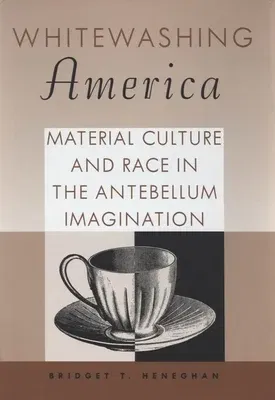Bridget T Heneghan
(Author)Whitewashing America: Material Culture and Race in the Antebellum ImaginationPaperback, 1 October 2003

Qty
1
Turbo
Ships in 2 - 3 days
In Stock
Free Delivery
Cash on Delivery
15 Days
Free Returns
Secure Checkout
Print Length
224 pages
Language
English
Publisher
University Press of Mississippi
Date Published
1 Oct 2003
ISBN-10
193411099X
ISBN-13
9781934110997
Description
Product Details
Author:
Book Format:
Paperback
Country of Origin:
US
Date Published:
1 October 2003
Dimensions:
22.86 x
15.24 x
1.27 cm
ISBN-10:
193411099X
ISBN-13:
9781934110997
Language:
English
Location:
Jackson
Pages:
224
Publisher:
Weight:
322.05 gm

